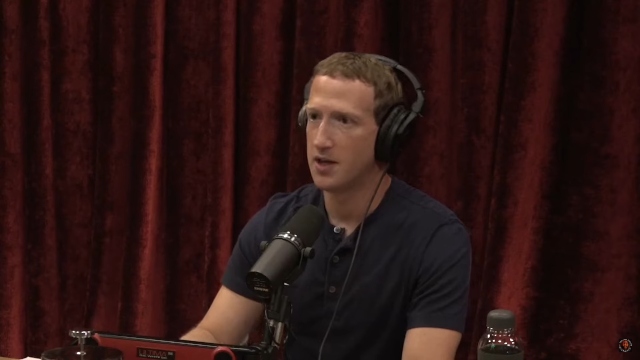Big Tech expert says Google’s ‘manipulations’ shifted ‘at least six million votes’ to Joe Biden
12/10/2020 / By News Editors

A tech expert says the outcome of the 2020 election was ‘manipulated’ for Joe Biden right in front of our eyes.
(Article by Victoria Taft republished from PJMedia.com)
No wonder he didn’t have to campaign much.
Tech expert and researcher for the American Institute for Behavioral Research and Technology Dr. Robert Epstein told Tucker Carlson on his Fox News program that Google manipulated search and other data, including using voting reminders, to manipulate the results of the 2020 election.
The Harvard Ph.D. and his 33-member research team watched tech giants Google, Yahoo, YouTube, Bing, and Facebook in three swing states—Arizona, North Carolina, and Florida—during the 2020 election. The former Psychology Today editor said his team “preserved 500,000 ephemeral experiences,” which he says are those short, quick bursts of information or experiences that disappear within seconds. He described “ephemeral experiences” in a 2019 interview and said how important it is to catch them in real-time.
“If you don’t monitor, you can’t go back in time and figure out what these companies were showing people because what they’re showing people is ephemeral. That’s the term that Google’s own employees use internally, they’re showing ephemeral experiences, those really short-lived experiences that kind of appear before your eyes and then disappear, like search results for example.”
He told Carlson that the 500,000 ephemeral experiences his team captured in the lead-up to the 2020 election gleaned 30 times more data than they got in 2016.
Here’s what Google did.
“Google’s search results were strongly biased in favor of liberals and democrats. This was not true on Bing or Yahoo. The bias was being shown to pretty much every demographic group we looked at, including conservatives. In fact, conservatives got slightly more liberal bias in their search results than liberals did. How do you account for that? […] These manipulations that we’ve so far quantified could easily have shifted at least six million votes in one direction. That’s the bare minimum at this point that I’m confident of. The maximum we haven’t even begun to estimate because we have so much data to look at.”
He says his team caught Google in the act and described what he called “a smoking gun.”
That was at least the margin of the election.
ICYMI, I was on @TuckerCarlson's opening segment tonight: "What effect did Big Tech have on the 2020 presidential #election?" I'm told that #POTUS tweeted this link to his 80 million followers a few minutes ago. (5-min. video)https://t.co/SmsjJmpttm
— Dr. Robert Epstein (@DrREpstein) November 24, 2020
Epstein says this wasn’t unexpected. After all, in a leaked video from a 2018 all-employee meeting following the 2016 election, Google executives bemoaned the election results and vowed to do something about it in Trump’s re-election bid. But on Tucker Carlson Tonight, Carlson asked Epstein if “manipulations of one company, Google, could have determined the outcome of the election.” His chilling answer was, “yes.”
“We’ve been told this by nearly a year by whistleblowers from Google. We’ve seen it in leaked documents from Google, leaked videos from Google. There’s no question that they set about that after the 2016 election to make sure that President Trump, whom I do not support by the way, to make sure he is not reelected. And the massive amount of data that we’ve collected is consistent with what the whistleblowers and leaks have been telling us for a long time now, so yes, the answer is yes.”
After that video appeared in 2018 (see it below), Epstein said they could shift more than six million votes to the Democrats. In the data that he and his researchers are culling, it’s probably many million more votes than that.
Breitbart was given the leaked tape that includes some stunning assessments of Trump and his voters.
These individuals, who preside over a company with unrivaled influence over the flow of information, can be seen disparaging the motivations of Trump voters and plotting ways to use their vast resources to thwart the Trump agenda.
Co-founder Sergey Brin can be heard comparing Trump supporters to fascists and extremists. Brin argues that like other extremists, Trump voters were motivated by “boredom,” which he says in the past led to fascism and communism.
The Google co-founder then asks his company to consider what it can do to ensure a “better quality of governance and decision-making.”
VP for Global Affairs Kent Walker argues that supporters of populist causes like the Trump campaign are motivated by “fear, xenophobia, hatred, and a desire for answers that may or may not be there.”
Later, Walker says that Google should fight to ensure the populist movement – not just in the U.S. but around the world – is merely a “blip” and a “hiccup” in a historical arc that “bends toward progress.”
Another Google executive appeared to be crying in the video over the results of the 2016 election. Maybe the results of Google’s concerted manipulations in 2020 will turn her frown upside down.
After pushing the idea that a couple hundred thousand dollars in Russian Facebook ads, many seen after the election, stole the election for Trump in 2016, Democrats don’t have a leg to stand on if they want to push back on this assessment of Google’s powerful and frightening efforts. In fact, Epstein says Democrats will probably be happy about the results of the tech manipulation – until they’re in the crosshairs.
Read more at: PJMedia.com and EvilGoogle.news.
Submit a correction >>
Tagged Under:
2020 elections, biased, Big Tech, conspiracy, election fraud, Election results, elections, Google, lies, politics, search engines, voter fraud
This article may contain statements that reflect the opinion of the author
RECENT NEWS & ARTICLES
COPYRIGHT © 2017 BigTech.news
All content posted on this site is protected under Free Speech. BigTech.news is not responsible for content written by contributing authors. The information on this site is provided for educational and entertainment purposes only. It is not intended as a substitute for professional advice of any kind. BigTech.news assumes no responsibility for the use or misuse of this material. All trademarks, registered trademarks and service marks mentioned on this site are the property of their respective owners.




















